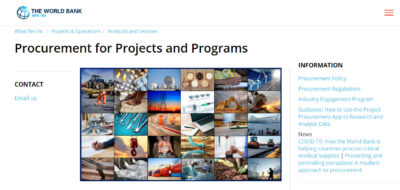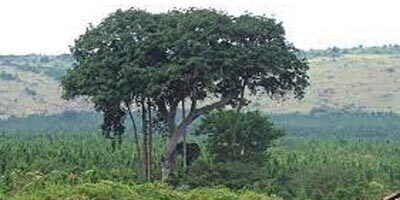
The Chad-Cameroon pipeline, a World Bank project that critics say was more harmful than beneficial. Photo by Ken Doerr.
The World Bank is planning to include a policy against discrimination in its new social safeguard standards. This is a big step forward for the institution, because it has refused to adopt explicit commitments to protect human rights in the past.
Human rights activists worldwide have criticized the World Bank for funding projects in states, such as Uzbekistan and Belarus, in which there are systemic violations of the human rights of their citizens. The Chad-Cameroon oil pipeline and the Narmada dam project in India are examples of projects the World Bank supported that critics argue were harmful to the environment and to human rights.
Supporters of a “rights-based” approach to development argue that allowing freedom of speech and the press, and ways for people to voice their opinions in making decisions that would affect them, means more effective development. Economist Amartya Sen defined development as “the process of expanding people’s substantive freedoms or capabilities to lead the lives they value,” with good health, literacy and education, and the ability to participate in the life of the community.
Now, after repeated calls by international civil society organizations, the World Bank has responded by including some human rights elements in its new social safeguard policy. But instead of recognizing its obligations to comply with universal human rights standards, it has opted for a ‘non-discrimination’ policy.
World Bank staff says that the draft social safeguard policy will be designed to empower, and that it will require the World Bank to ‘identify and address discrimination and adverse impacts on vulnerable people with the definition of “non-discrimination’ specifically referring to LGBT, religious, racial and other minorities, gender, elderly, children, disabled and infirm.“
I asked a few experts whether this kind of policy of non-discrimination is a sufficient replacement for a policy that more explicitly refers to universal human rights.
Stephen Brown, a professor of Political Science at the University of Ottawa, says the wording of the policy is vague. “It does not say the World Bank will stop lending money to countries that discriminate in LGBT or other categories. It says that they want discrimination to be addressed, but they are not making it a condition of admissibility to the system”.

Opposition rally on presidential elections day in Minsk, Belarus December 2010. Shortly afterwards, the government banned assemblies and gatherings. Photo by Radio Svaboda.
Errol Mendes, a human rights expert and a professor of law at the University of Ottawa, has been consulted by the World Bank on human rights and safeguard policy revisions. He has similar reservations about the World Bank’s definition of non-discrimination. “What I fear is that the actual interpretation of non-discrimination would be determined by the bank itself, and not in connection with the range of international human rights.”
Nancy Thede, professor in the social sciences department at Université de Montréal, does see value in a non-discrimination policy. “We can make the argument that non-discrimination covers access to all rights. Any kind of discrimination in terms of access to political, civil rights or freedom of expression can, in a pinch, be covered in non-discrimination rights,” she said.
Even so, she is concerned. “The World Bank is undermining the whole edifice of human rights which has been so painstakingly built over the past few decades. All of these rights are interrelated and inseparable.”


